Description
Woman and Child with Serving Maid by Pieter De Hooch printed on a T-Shirt
About the T-Shirt
Regular fit
Standard length, the fabric easily gives into movement
Casual wear
A classic, everyday option loved by our customers
Side-seamed
Constructed by sewing two parts together, creating a fitted look
The Unisex Staple T-Shirt feels soft and light with just the right amount of stretch. It’s comfortable and flattering for all. We can’t compliment this shirt enough–it’s one of our crowd favorites, and it’s sure to be your next favorite too!
- Solid colors are 100% Airlume combed and ring-spun cotton
- Ash color is 99% combed and ring-spun cotton, 1% polyester
- Heather colors are 52% combed and ring-spun cotton, 48% polyester
- Athletic and Black Heather are 90% combed and ring-spun cotton, 10% polyester
- Heather Prism colors are 99% combed and ring-spun cotton, 1% polyester
- Fabric weight: 4.2 oz./yd.² (142 g/m²)
- Pre-shrunk fabric
- 30 singles
- Side-seamed construction
- Tear-away label
- Shoulder-to-shoulder taping
- Blank product sourced from Nicaragua, Mexico, Honduras, or the US
Pieter De Hooch (1629-1684)
Pieter de Hooch was a Dutch Golden Age painter famous for his genre works of quiet domestic scenes with an open doorway. He was a contemporary of Jan Vermeer in the Delft Guild of St. Luke, with whom his work shares themes and style.
De Hooch was born in Rotterdam to Hendrick Hendricksz de Hooch, a bricklayer, and Annetge Pieters, a midwife. He was the eldest of five children and outlived all of his siblings. Little is known of his early life and most archival evidence suggests he worked in Rotterdam, Delft, and Amsterdam. According to his first biographer Arnold Houbraken, he studied art in Haarlem under the landscape painter Nicolaes Berchem at the same time as Jacob Ochtervelt and was known for his “kamergezichten” or “room-views” with ladies and gentlemen in conversation.
The early work of de Hooch was mostly composed of scenes of soldiers and peasants in stables and taverns in the manner of Adriaen van Ostade, though he used these to develop great skill in light, color, and perspective rather than to explore an interest in the subject matter.
After starting his family in the mid-1650s, he switched his focus to domestic scenes. These were possibly of his own family, though his works of well-to-do women breastfeeding and caring for children could also indicate that he had attended his mother on her rounds as a midwife.

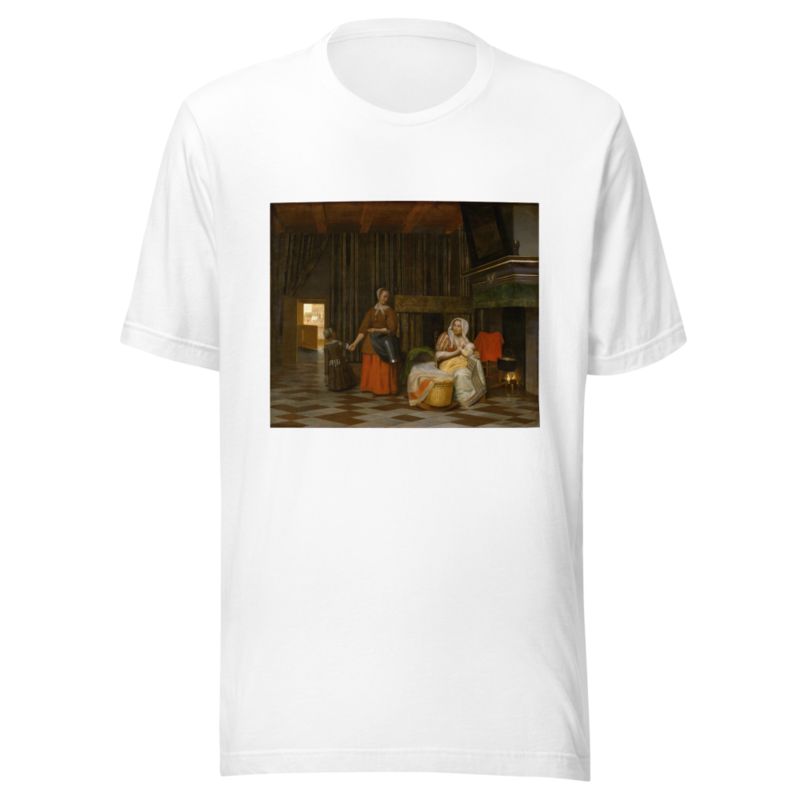
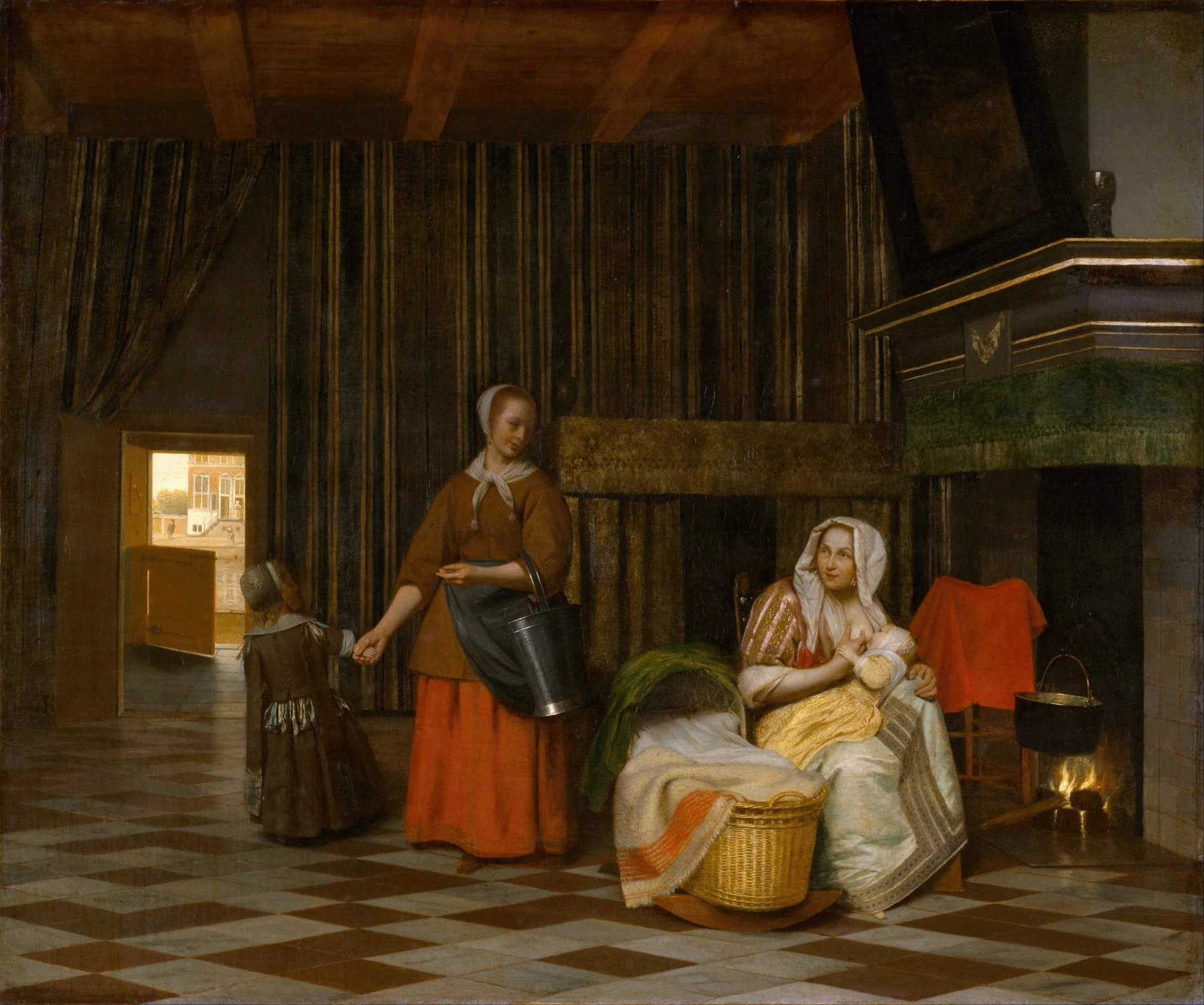
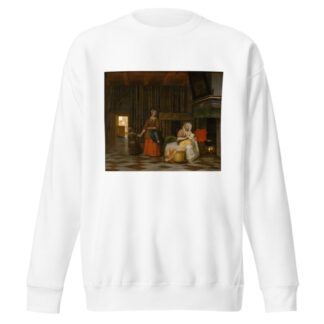
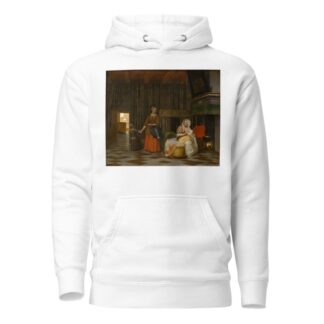
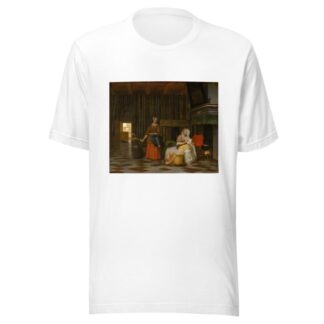
Reviews
There are no reviews yet.